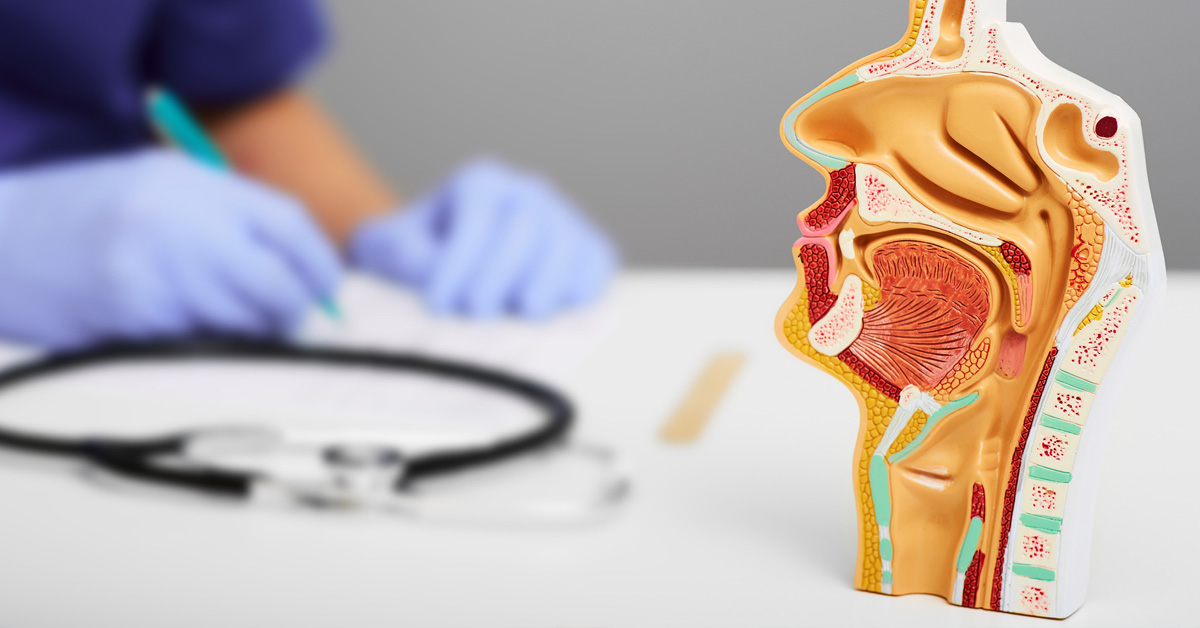What to Expect at Your Otolaryngologist Visit in Diagnosing Complex Head and Neck Conditions
What to Expect at Your Otolaryngologist Visit in Diagnosing Complex Head and Neck Conditions
Blog Article
Discovering the Field of Otolaryngology: What to Expect When You Get In Touch With an ENT
Otolaryngology, commonly referred to as ENT, includes the medical diagnosis and treatment of ear, nose, and throat conditions. For those experiencing associated issues, seeking advice from an ENT professional can provide clarity and alleviation. Comprehending what to expect during such appointments is vital for effective interaction and care. This introduction will detail key elements of the ENT experience, including usual reasons for visits and the processes involved in diagnosis and treatment.

Understanding Otolaryngology: A Summary
Otolaryngology, commonly described as ENT (Ear, Nose, and Throat) medication, is a specific branch of medicine that focuses on the diagnosis and therapy of conditions affecting these essential areas of the body. This area includes a vast array of conditions, including those associated to hearing, balance, breathing function, and speech. Otolaryngologists are trained to handle both medical and surgical treatments, making use of advanced techniques and technologies. Their knowledge prolongs beyond traditional ailments, dealing with issues such as allergic reactions, sinus infections, and hearing loss. In addition, they play a critical duty in the management of head and neck cancers cells, offering comprehensive treatment customized to specific client requirements. In general, otolaryngology continues to be vital for keeping wellness and lifestyle in afflicted individuals.
Typical Reasons to See an ENT Professional
Several people seek the competence of an ENT specialist for a selection of reasons, mirroring the diverse nature of conditions that affect the nose, throat, and ear. Usual problems include persistent sinus problems, which frequently results in consistent nasal blockage and facial discomfort. Allergic reactions and their connected symptoms, such as sneezing and itching, likewise motivate check outs to these experts (Sinus). Hearing loss, whether gradual or unexpected, is another considerable reason for examination. In addition, people may look for examination for throat conditions, consisting of relentless hoarseness or swallowing difficulties. Rest apnea, characterized by disturbed breathing throughout sleep, is frequently resolved by ENT experts as well. Each of these problems highlights the relevance of specialized care in handling intricate ENT-related health and wellness problems
Preparing for Your ENT Appointment
When planning for an ENT consultation, it is essential to gather relevant info and consider any kind of certain problems. Patients should compile a comprehensive case history, including previous ear, nose, or throat concerns, surgical treatments, and existing medications. Documenting signs-- such as frequency, seriousness, and duration-- can provide important insights for the ENT professional. In addition, people ought to prepare a list of inquiries they desire to ask, making certain that all problems are addressed throughout the browse through. Bringing along any kind of appropriate medical records or test results can additionally assist the ENT in comprehending the client's problem. Clients ought to verify their appointment details, consisting of day, area, and time, to decrease any type of last-minute confusion. Proper prep work can improve the effectiveness of the consultation and cause much better outcomes.
What to Anticipate During the Consultation
As the appointment starts, the individual can expect to engage in a comprehensive discussion with the ENT professional about their symptoms and clinical background. The specialist will ask about the duration, regularity, and severity of signs such as hearing loss, nasal congestion, or aching throat. Furthermore, the person's previous medical conditions, drugs, and any type of relevant family members history will be evaluated, assisting the specialist in forming a total understanding of the patient's health. The ENT may also inquire about way of living variables, such as exposure to allergens or toxic irritants. This open dialogue establishes a structure for the consultation, guaranteeing that the client's concerns are resolved and setting the phase for any required evaluations or suggestions for therapy.
Analysis Examinations and Treatments in Otolaryngology
A variety of diagnostic tests and treatments are essential in otolaryngology to precisely examine and detect problems affecting the ear, throat, and nose. Usual tests include audiometry, which gauges hearing function, and tympanometry, examining center ear pressure. Nasal endoscopy enables visualization of the nasal passages and sinuses, while laryngoscopy takes a look at the throat and vocal cords. Imaging techniques, such as CT scans and MRIs, offer in-depth sights of head and neck structures. Allergy testing may likewise be conducted to determine triggers for sinus or respiratory concerns. These diagnostic tools enable ENT specialists to establish an extensive understanding of individuals' conditions, making sure tailored and effective administration strategies. Proper medical diagnosis is crucial for successful treatment results in otolaryngology.
Therapy Alternatives Offered by ENT Specialists
ENT experts supply a variety of treatment alternatives tailored to resolve certain problems affecting the ear, nose, and throat. These therapies range from conservative strategies, such as medication and way of life modifications, to more intrusive procedures. Allergic reactions may be managed with antihistamines or immunotherapy, while persistent sinus problems may require nasal corticosteroids or sinus surgery. For hearing loss, ENT experts often advise hearing aids or medical treatments like cochlear implants. In instances of throat problems, options can include speech therapy or surgeries to remove obstructions. Additionally, they may give support for handling sleep apnea, consisting of making use of CPAP tools or surgical interventions. Overall, the objective is to boost people' quality of life with customized care and reliable therapy techniques.
When to Look For Follow-Up Treatment With an ENT
When to seek follow-up care with an ENT professional is vital for handling continuous signs and symptoms or problems related to ear, nose, and throat conditions, recognizing. People need to think about arranging a follow-up appointment if symptoms linger regardless of first therapy, such as chronic ear pain, nasal congestion, or throat pain. Modifications in hearing, equilibrium concerns, or unusual nasal discharge may additionally require further assessment. Additionally, if a person experiences adverse effects from recommended medicines or has undergone a procedure, follow-up treatment is very important to keep an eye on recovery and address any kind of problems. Timely appointments can ensure effective management of problems, prevent possible problems, and give assurance concerning one's health and wellness. Looking for follow-up care promotes proactive wellness administration in otolaryngology.
Frequently Asked Inquiries

What Qualifications Should I Seek in an ENT Specialist?
When looking for an ENT expert, one need to search for board accreditation, relevant experience, and strong individual evaluations. In addition, effective communication abilities and a caring approach can greatly enhance the overall therapy experience.
How Do I Pick the Right ENT for My Needs?
Picking the right ENT professional involves evaluating their credentials, experience, and individual reviews (Sinus). It is crucial to consider their interaction style and approach to treatment, ensuring they align with the individual's certain wellness needs and preferences
Are There Any Dangers Associated With ENT Procedures?
The dangers related to ENT procedures may consist of infection, bleeding, anesthesia difficulties, and prospective damage to bordering frameworks. People need to go over these risks with their doctor to recognize specific issues and warranty notified decisions.
Just How Can I Manage Anxiety Before My ENT Appointment?
To manage anxiousness prior to an appointment, individuals can practice deep breathing workouts, envision positive outcomes, prepare questions beforehand, and seek assistance from friends or family members, cultivating a sense of reassurance and calmness.
What Should I Do if I Experience Adverse Effects From Therapy?
The person needs to without delay report them to their health care company if side impacts from treatment occur. Modifications to therapy or extra interventions might be needed to guarantee safety and performance in managing their condition - ENT surgery. As the consultation starts, the client can anticipate to involve in a comprehensive conversation with the ENT expert about their signs and symptoms and medical history. These analysis tools enable ENT professionals to develop a complete understanding of individuals' problems, guaranteeing tailored and effective management plans. ENT specialists offer a range of treatment options tailored to deal with details conditions influencing the throat, nose, and ear. When looking for an ENT professional, one must look for board certification, relevant experience, and strong person reviews. Selecting here the right ENT specialist involves assessing their credentials, experience, and client reviews
Report this page